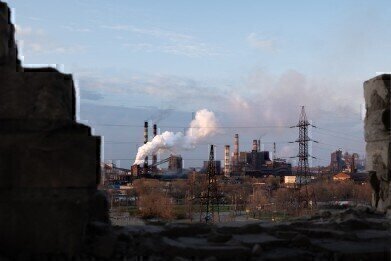Air Clean Up
Europeans Lose 2 Years to Air Pollution, Research Finds
Jul 17 2020
The average European is reducing their lifespan by over two years through breathing contaminated air, according to an alarming new study from Germany. The research, which was published in the European Heart Journal, found that European are losing 2.2 years of their life to poor air quality, which is double the global average as estimated by the World Health Organisation (WHO).
The study also found that around 133 in every 100,000 Europeans suffer premature death as a result of prolonged exposure to air pollution, equating to roughly 800,000 people every year. Again, that figure is over double the previous estimate compiled by the WHO, suggesting that European air quality is a far bigger problem than imagined – especially in some parts of the continent.
Damning statistics
The findings of the study were arrived at via the use of sophisticated outdoor monitoring solutions for contaminants such as particulate matter and black carbon, with the data fed into new hazard ratio functions to estimate the total number of fatalities and reduced lifespans. In the whole of Europe, 790,000 people were estimated to lose their life prematurely to poor air quality. The 28 countries in the EU fared little better, suffering 659,000 premature deaths each year.
Between 40% and 80% of those deaths were not directly attributable to respiratory conditions, either. Instead, cardiovascular complications like heart disease and strokes can be caused and exacerbated by breathing in tiny particles of pollution which can then infiltrate the bloodstream, causing untold damage to the body’s internal organs.
Eastern Europeans more at risk
Pollution levels were not consistent across the bloc, either. Those living in Eastern European countries were likely to suffer from higher concentrations of contaminants due to their over-reliance on polluting forms of energy generation, such as the combustion of fossil fuels. Vehicles tend to be less efficient in more impoverished nations, while a dearth of public transport can also contribute to the problem.
The study isn’t 100% bulletproof due to the fact that not all countries have a network of low-cost, high-quality pollution monitors in place, but certainly points towards the pollution epidemic that is plaguing Europe and beyond. Over the last five years, global pollution concentrations have risen by a staggering 8%.
An avoidable evil
Perhaps the most heart-breaking element of the situation is how it could so easily be different. “To put this into perspective, this means that air pollution causes more extra deaths a year than tobacco smoking,” explains Thomas Münzel, one of the contributors to the recent research. “Smoking is avoidable, but air pollution is not.”
Substituting the most damaging forms of energy generation for cleaner, renewable alternatives and upgrading the transport infrastructure to encourage use of public transport could have a drastic impact on European air quality. However, both of those measures require significant capital to put in place and the political will behind them, neither of which are in abundant supply in many European nations.
Events
May 05 2024 Seville, Spain
May 13 2024 Munich, Germany
May 23 2024 Beijing, China
May 23 2024 Beijing, China
Jun 10 2024 Algiers, Algeria














